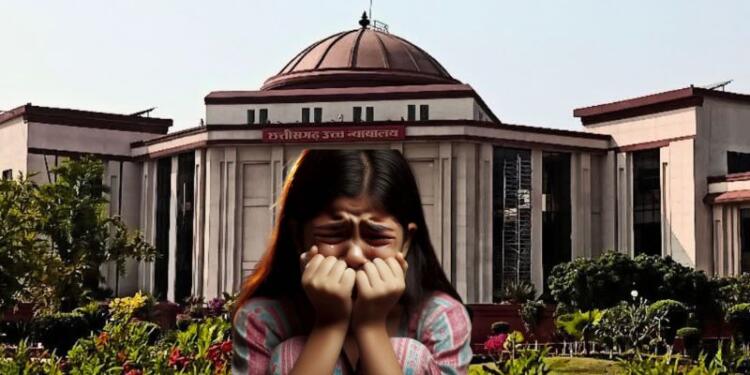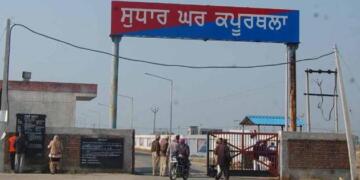On 4th December, the Chhattisgarh High Court overturned the death sentence of a man who was convicted of kidnapping, sexually assaulting, and murdering a seven-year-old child in 2021 simply because he came from a backward community. While commuting his death sentence, the High Court remarked that since the convicted rapist was from a backward community and there was a chance of his reformation.
While acknowledging the severity of the crime, the Division Bench, consisting of Chief Justice Ramesh Sinha and Justice Amitendra Kishore Prasad, determined that the case did not meet the stringent “rarest of the rare” standard required for a death sentence, as outlined by the Supreme Court.
The bench held, “These are the incriminating circumstances, but there is no evidence on record that the appellant cannot be reformed or rehabilitated as at the time of offence he was aged about 29 years and he is a member of Other Backward Class, thereby he belongs to backward community and his chances of being reformed or rehabilitated cannot be ruled out.”
The case dates back to February 28, 2021, when the convict, Dipak Baghel, took the victim and her brother to a celebration. After leaving the boy at the event, Baghel brought the girl to a railway track in Somni, where he sexually assaulted her before killing her by crushing her head with a large stone. He then disposed of her body on the tracks in an attempt to destroy evidence.
The crime was later uncovered, and an FIR was filed against Baghel. Police investigations revealed sufficient evidence, including DNA reports, which led to Baghel’s conviction for rape and murder.
The trial court sentenced him to death, charging him under Sections 302, 201, 363, and 366 of the Indian Penal Code (IPC) and Section 6 of the Protection of Children from Sexual Offences (POCSO) Act.
The matter was then referred to the Chhattisgarh High Court for confirmation of the capital punishment. Dipak Baghel, the convict, filed an appeal, challenging the trial court’s verdict.
After reviewing all the evidence, including testimonies from the victim’s family, the High Court confirmed the conviction.
The Court said, “Thus, after appreciating the entire ocular and medical evidence on record, we do not find any illegality in appreciation of oral, medical and circumstantial evidence or arriving at a conclusion as to the guilt of the appellant by the trial Court warranting interference by this Court and we accordingly hereby confirm the conviction of the appellant recorded under Section 302 of the IPC.”
Also Read: George Soros and US Link Behind OCCRP’s Attack on Adani Group Exposed
However, the bench found that the trial court had erred in awarding the death penalty without fully considering the convict’s potential for rehabilitation.
The High Court observed that the lower court had not given the appellant an opportunity to present evidence on his potential for reformation, nor had it considered his conduct while in jail.
The court noted that Dipak Baghel had not been involved in any jail offenses and had shown typical behavior in custody. The bench emphasized that while the crime was heinous, it did not qualify as a “rarest of the rare” case, and therefore, the death sentence was commuted.
The court mentioned, “The trial Court has not taken into consideration the probability of the appellant being reformed and rehabilitated and has only taken into consideration the crime and the manner in which it was committed and has not given the effective opportunity of hearing on the question of sentence to the appellant. No evidence was brought on record on behalf of the prosecution to prove to the Court that the appellant cannot be reformed or rehabilitated, by producing material about his conduct in jail, and no opportunity of hearing was given to the appellant to produce evidence in that respect.”
It further added, “Though it shocks the consciousness of the society at large, yet, in the facts and circumstances of the case, considering the young age of the appellant, upon thoughtful consideration, we are of the view that extreme sentence of the death penalty is not warranted in the facts and circumstances of the case. We are of the opinion that this is not the rarest of rare cases in which a major penalty of sentence of death awarded has to be confirmed.”


























